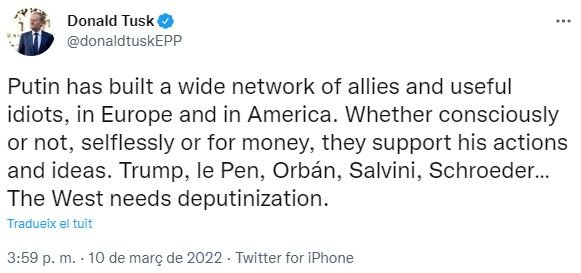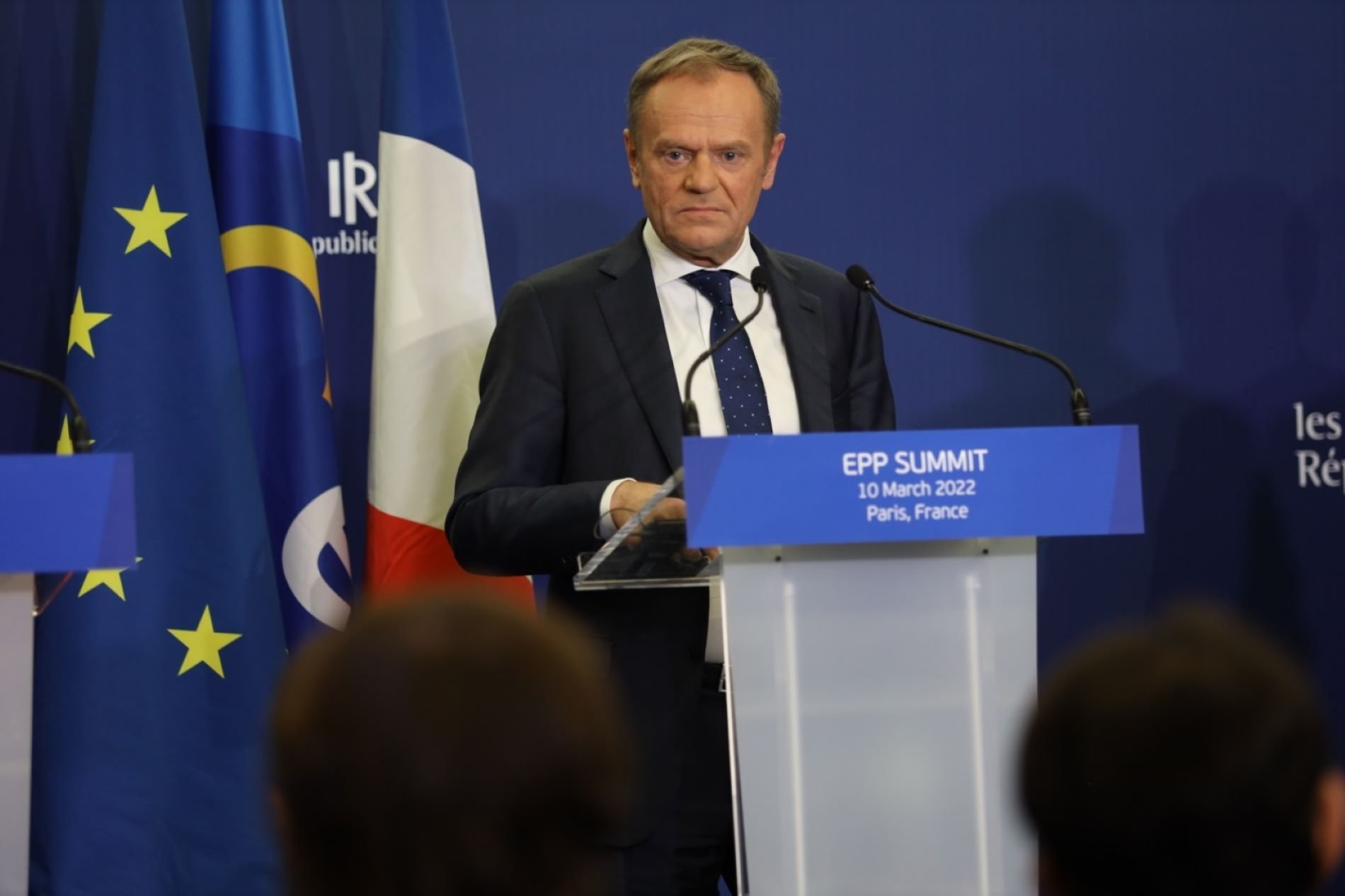While much of the European Union is trying to limit them via a cordon sanitaire, the right and the far right have a good understanding in Spain. The president of the European People's Party (EPP), Donald Tusk, verbally castigated the Spanish PP for having reached an agreement with Vox on jointly governing the large Spanish region of Castilla y León, referring to the deal reached by the two parties as a "sad surprise". "It was a sad surprise. Pablo Casado was a personal guarantee to keep the PP in the centre-right, avoiding this kind of flirtation with the radicals, with far-right movements like Vox," Tusk said in a meeting of EPP leaders in Paris on Thursday, prior to the informal summit of European heads of state at Versailles. He also said he hoped the controversial pact was an "incident" and not a trend in the Spanish state.
The meeting of European conservatives was devoted to the Ukrainian conflict and the evaluation of the party's position in the face of this crisis, as well as the response of the European institutions. One of the main problems highlighted by Tusk was the traditional support of the far right for Russian president Vladimir Putin, and in this regard he strongly called out the French politicians Marine Le Pen and Éric Zemmour, the Italian Matteo Salvini and the Hungarian Viktor Orbán. In a tweet, he insisted on the necessary "deputinization" of the West: "Putin has built a wide network of allies and useful idiots, in Europe and America. Whether consciously or not, selflessly or for money, they support his actions and ideas. Trump, Le Pen, Orbán, Salvini, Schroeder... The West needs deputization. "

EPP President Donald Tusk criticizes far-right support for Putin / @donaldtuskEPP
While the EPP President did not mention Santiago Abascal in the tweet, the Vox leader is clearly part of this list of extremists who have frequently lent their support to the autocrat in the Kremlin. For that reason, Tusk was asked directly about the agreement between PP and Vox. A pact by which the far-right party will enter the government of a Spain's largest autonomous region, Castilla y León, thanks to a legislative agreement with the conservatives, paving the way for new such pacts in the future. Faced with this, Tusk said he hoped it would be "an incident and not a trend in Spanish politics." "It is a very strong signal to us that we need to fight against these urges to build political forces which may seem strong, but in the long term, are a capitulation," said Tusk, former Polish prime minister as well as ex-president of the European Council. And he gave the warning in front of the lame-duck leader of the Spanish PP, Pablo Casado, who took part in the meeting despite the fact that he is about to leave office.
Casado's foreseeable successor at the helm of the party, the Galician leader Alberto Núñez Feijóo, called for "respect" for his PP colleague Alfonso Fernández Mañueco's pact with the far right. An agreement that is "perfectly legitimate," according to Feijóo. In fact, he blamed the Socialists of the PSOE for the fact that the far right is entering an autonomous community government for the first time, as the PSOE failed to agree on voting support that could have enabled the PP candidate to avoid this coalition government.
In any case, the outlooks of Europe and Spain on the danger posed by the extreme right tendencies in politics seem to be very different. Under today's PP-Vox agreement, three ministries and the vice-presidency of the new government will be held by the far right in the huge northwestern region, whose parliament will also be presided by a speaker from the Vox party. The only offer of the Spanish Socialists to enable the PP to govern without the far right party in Castilla y Leon required them to also break off their deals in other regions where the conservatives govern with external support from Vox. The PP turned it down.

